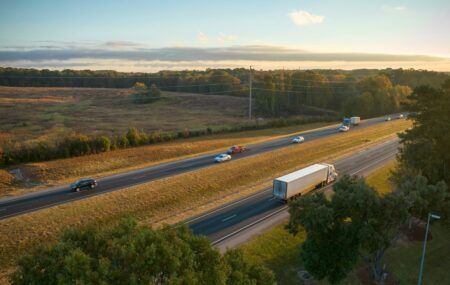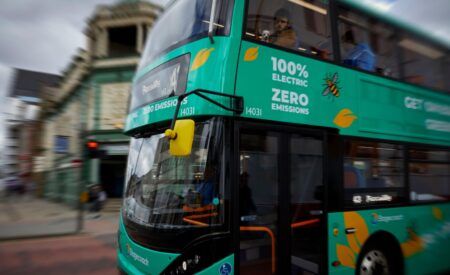EarthSense Systems, a joint venture between aerial mapping company Bluesky and the University of Leicester, is helping develop a system to automatically activate zero-emission running of hybrid electric vehicles along the most heavily polluted city streets.
Using its state-of-the-art Zephyr air quality monitoring sensor, EarthSense will measure local air quality levels, in real time, and upload them to a specially developed hybrid vehicle interface, triggering on-demand zero-emission running instructions in vehicles when pollution levels are high enough. Known as Project ACCRA and led by Cenex, the UK’s first Centre of Excellence for low carbon technology, the project is being undertaken in partnership with Leeds City Council. By using part of the proposed Clean Air Zone in Leeds, Project ACCRA promises to offer cities new ways to reduce urban air pollution without additional charges to motorists or businesses.
The Zephyr sensor used by EarthSense to capture real time air pollutions measurements is compact, lightweight and portable, and can be operated in static or mobile mode. Measuring pollutants such as Nitrogen Dioxide (NO?) and Ozone (O3), the Zephyr can also be calibrated to measure Particulate Matter (PM), Sulphur Dioxide (SO?) and Carbon Monoxide (CO). EarthSense’s future plans include the establishment of a nationwide network of air quality monitoring sensors, feeding live data for up to the minute air quality predictions.
Other ACCRA project partners include a consortium of automotive innovators, led by intelligent mobility experts at the UK’s Transport Systems Catapult (TSC). Clean truck technology company Tevva will develop the hybrid vehicle interface, while transportation network systems developer Dynniq will work on a decision-making engine capable of taking inputs from a range of city data, such as live air quality information, from EarthSense, and real-time traffic conditions. Cenex and TSC will evaluate the application, markets, business models and scalability of the system, in the hopes of using the technology more widely in Leeds and other Clean Air Zones in the UK.
“Using real-time air quality data to understand pollution in our city centers, and automatically instruct vehicles driving into high pollution areas to switch to zero-emissions driving, has the potential to save lives and transform our city centers,” commented Professor Roland Leigh, technical director at EarthSense. “By exploring the potential of geofencing technology, Project ACCRA represents the best in vehicle-to-infrastructure (V2I) communication, and true partnership between industry, research and government.”




